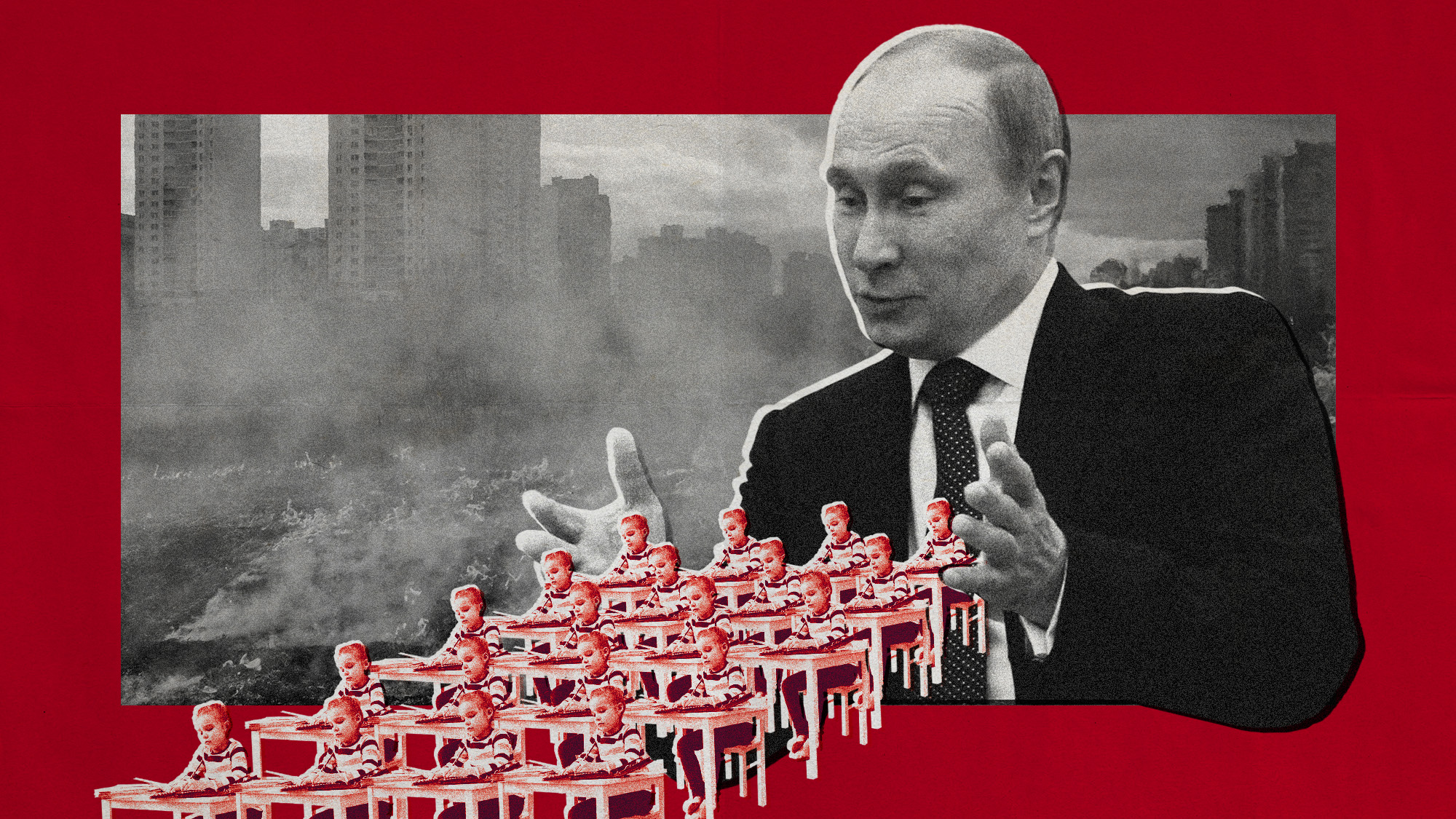Ukraine's stolen children
Officially 20,000 children have been detained since Russia's invasion in 2022, but the true number is likely to be far higher

A free daily email with the biggest news stories of the day – and the best features from TheWeek.com
You are now subscribed
Your newsletter sign-up was successful
Ukraine is "racing against time" to bring home the thousands of children taken by Russian forces, said The Wall Street Journal.
Russian officials "say they are protecting the children from the war", but admit that they are "seeking to re-educate the children and turn them into loyal Russians", said the WSJ.
"Ukraine, the children and their families are in a race against time to get them back before they are lost for good."
The Week
Escape your echo chamber. Get the facts behind the news, plus analysis from multiple perspectives.

Sign up for The Week's Free Newsletters
From our morning news briefing to a weekly Good News Newsletter, get the best of The Week delivered directly to your inbox.
From our morning news briefing to a weekly Good News Newsletter, get the best of The Week delivered directly to your inbox.
How many have been taken?
About 20,000 children have been identified as forcibly deported since Russia's invasion in 2022, according to a database compiled by Ukrainian authorities. According to the National Information Bureau, fewer than 400 have been returned.
But the true number of stolen children could be far higher. In 2022, the US estimated that Russia had "forcibly deported" 260,000 children to Russia, "often to isolated regions in the Far East".
Reports indicate that Russian authorities are "deliberately separating Ukrainian children from their parents and abducting others from orphanages before putting them up for adoption inside Russia", said the US State Department.
Last year, Russian authorities said that more than 700,000 Ukrainian children had "found refuge with us, fleeing the bombing and shelling from the conflict areas in Ukraine".
A free daily email with the biggest news stories of the day – and the best features from TheWeek.com
While the transfers were supposed to be temporary, "most became prolonged", with both parents and children facing "an array of obstacles in establishing contact", UN investigators reported last year. The forced deportations "violate international humanitarian law, and amount to a war crime".
Russia "claims that these children don't have parents or guardians to look after them", said The Associated Press in 2022. It "portrays its adoption of Ukrainian children as an act of generosity", with state media showing local officials "hugging and kissing them and handing them Russian passports".
But according to the AP investigation, officials had "deported Ukrainian children to Russia or Russian-held territories without consent, lied to them that they weren't wanted by their parents, used them for propaganda, and given them Russian families and citizenship".
Russia's "open effort to adopt Ukrainian children and bring them up as Russian" is one of the most "explosive issues of the war".
Last year the International Criminal Court (ICC) issued an arrest warrant for Vladimir Putin, accusing the Russian president and his staff of personal responsibility for the illegal abductions of children.
Putin has "explicitly supported the adoptions", said AP News. Raising children of war in another country or culture "can be a marker of genocide, an attempt to erase the very identity of an enemy nation".
What is being done?
When Russia's "campaign" to deport children from occupied areas became apparent, a nonprofit group, Save Ukraine, began to "organise rescues", said The New York Times.
Ukrainian authorities, foreign governments, Russian volunteers and other charities have all helped bring several hundred children back to Ukraine, said WSJ.
But the challenges of doing so are "daunting". Russian officials say they will release children to their legal guardians, but finding identity and guardianship documents is difficult in the "chaos of war".
The journey to Russia to pick up the children is "intimidating, as well as expensive". Many of the children are now orphans, so don't have anyone to look after them.
Even Qatar, a US ally that "punches above its weight in global diplomacy", has had to downsize its ambitions to return thousands of children after "confronting myriad logistical and political challenges". To date, said the paper, Qatar has returned only 70 children, with 29 more expected to be sent home soon.
Charities like Save Ukraine can help by arranging documents and transport for guardians to fetch the children. But the mission is growing more difficult, said the paper.
Most of the Ukrainian children taken were "funnelled" through summer camps in and around the occupied Crimean Peninsula. But now children are being sent from the camps to Russian families, and Russia "obstructs efforts to get them back".
Some Russian foster families have reportedly been trying to persuade children to stay.
"Every time it gets harder and harder," Mykola Kuleba, Save Ukraine's founder, told the WSJ. "It's harder to find the child. It's harder to organise the journey."
Harriet Marsden is a senior staff writer and podcast panellist for The Week, covering world news and writing the weekly Global Digest newsletter. Before joining the site in 2023, she was a freelance journalist for seven years, working for The Guardian, The Times and The Independent among others, and regularly appearing on radio shows. In 2021, she was awarded the “journalist-at-large” fellowship by the Local Trust charity, and spent a year travelling independently to some of England’s most deprived areas to write about community activism. She has a master’s in international journalism from City University, and has also worked in Bolivia, Colombia and Spain.